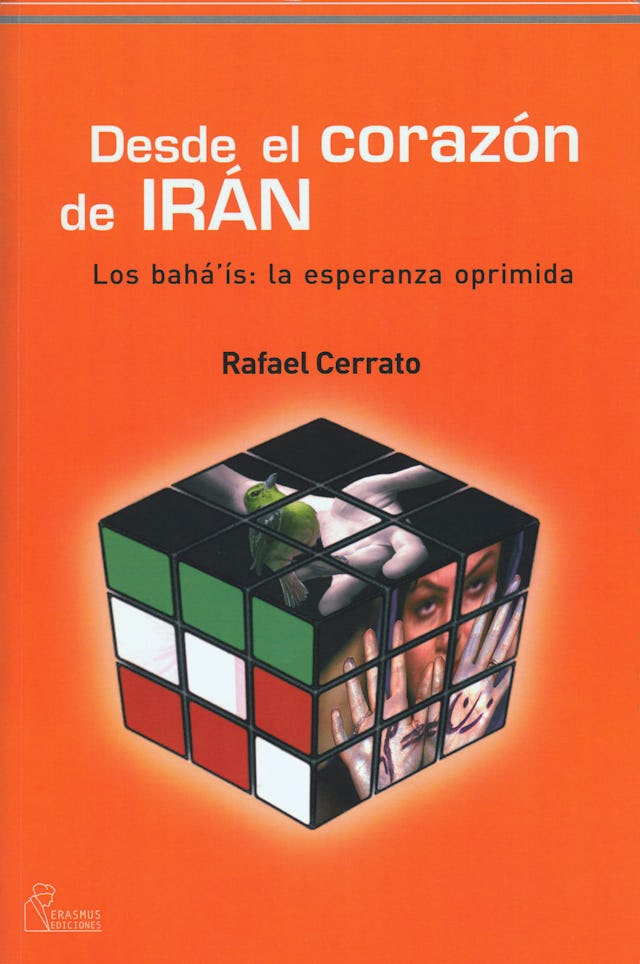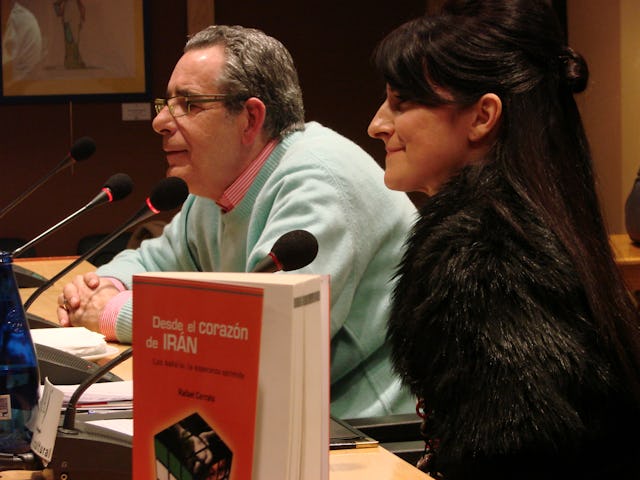Spanish author discovers "bridge between East and West"
MADRID, Spain — When author Rafael Cerrato decided to pay a short visit to the north of Israel in 2006, little did he suspect that it would give rise to a new book.
Passing through the city of Haifa, he was deeply impressed by the buildings and gardens of the Baha'i World Centre, situated on the slopes of Mount Carmel.
"I was amazed," said Mr. Cerrato. "I immediately thought I had to discover what lay behind that beauty."
Returning to Spain, the author – who is Roman Catholic and has written extensively about religion – started looking into the history and teachings of the Baha'i Faith and was fascinated by what he found out.
"I discovered that the long-awaited bridge between East and West – which many politicians and intellectuals have tried to create with the Alliance of Civilizations and such – already exists," he said.
"Without losing any of the principles of previous religions, the Baha'i social teachings have it all – the need for supranational bodies, the equality between men and women,
universal education... I believe in these principles and they attract me – so I have no problem in broadcasting them."
During his research, Mr. Cerrato also became impressed by "the great faith and steadfastness" that the Baha'i community of Iran shows in the face of opposition.
He decided to write a book charting the story of the Baha'i Faith, with an emphasis on the severe oppression its members have experienced at the instigation of the authorities in Iran – the land of the Faith's birth – since its inception in the middle of the 19th century.
The book, titled Desde el corazon de Iran – Los baha'is: La esperanza oprimida (From the Heart of Iran – The Baha'is: Oppressed Hope), has recently been published by Erasmus Ediciones. It is one of the first major works written in Spanish about the genesis and persecution of the Baha'i community in Iran.
Mr. Cerrato's book has been described in one review as a "deftly handled, well-documented and panoramic journey."
The reviewer, Enrique Cordoba – a columnist for El Nuevo Herald – wrote, "I celebrate that Cerrato has published this book...for those who want to inform themselves of a doctrine that should be studied."
Miami-based radio journalist Ninoska Perez Castellon wrote that it is "a necessary book... It's a call to the world to ensure that the abuses against the Baha'i community in Iran are not left to fall into obscurity."
"It is because of the integrity of writers like Rafael Cerrato that we can become deeply familiar with a subject that should be on the front page of newspapers," she wrote.
Born in Cordoba in 1951, Mr. Cerrato studied economics in Malaga before devoting his energy to exploring what he describes as the "great truths not recorded in history but that are key to understanding our present."
Religion plays a major role in that understanding.
"I have always thought man is a 'religious animal' – even more than the political animal that many philosophers have defined," said Mr. Cerrato. "Without religion, social phenomena or the evolution of the world cannot be understood."
In his 2005 work, Letter to Fernando Sanchez Drago, he drew comparisons between the founders of Christianity, Islam and Buddhism. The following year, Lepanto, the Unfinished Battle explored the history of the West's relationship with Islam.
"Religion should be a force for good and a unifying element," he said. "But, unfortunately, it is the cause of many problems. The origin of these problems is not religion itself...They are mainly caused by the distortion men make of its content and message."
Mr. Cerrato has lived for 10 years outside of Barcelona, close to the popular pilgrimage destination of Montserrat, from which he derives his own spiritual inspiration.
He is also passionate about traveling and immersing himself in the world's diverse cultures. After carrying out numerous speaking engagements and book signings in Spain, he will be visiting the United States next month to speak about From the Heart of Iran at the prestigious Books and Books store in Miami, Florida.
"I consider Miami to be the gate to America for the Spanish-speaking culture," he said.
Gilbert Grasselly – a professional translator based in Hollywood, Florida – agrees. "There's a very large Spanish-speaking population here in Miami Dade County. It's an important point for Hispanics."
Mr. Grasselly has been asked to translate From the Heart of Iran into English.
"He's calling the public's attention to what's happening," said Mr. Grasselly. "It touched me when I read these histories. It's very moving."
Mr. Cerrato hopes that his book will inform Spanish-speaking readers both about the the situation the Baha'is face in Iran, and the values for which they are prepared to suffer.
"I hope it will open the eyes of leaders, journalists, and intellectuals who read it – if they do – about the plans and actions of the present government in Iran."
"And at the same time, I hope they see that, through the Baha'i Faith, many constructive processes of dialogue can be opened between East and West."

